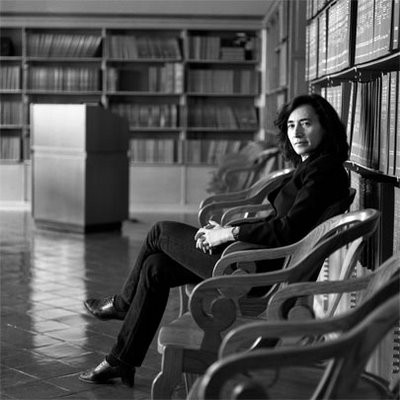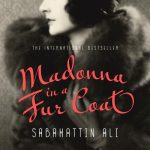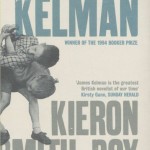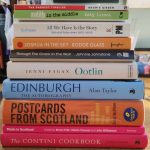In the first of a series of interviews with contemporary American writers, Lisa Locascio meets Francine Prose
Support independent, non-corporate media.
Donate here!

As well as boasting the most apt literary surname around, Francine Prose has been a finalist for the National Book Award, a Director’s Fellow of the New York Public Library’s Center for Scholars and Writers and of the New York Institute for the Humanities, and the recipient of Washington University’s International Humanities Medal, two National Endowment for the Arts grants, a PEN translation prize, a Fulbright Fellowship, and a Guggenheim Fellowship. She is the author of over twenty-five books of fiction and nonfiction, including Household Saints (1981), The Lives of the Muses: Nine Women & the Artists They Inspired (2002), My New American Life (2011), Anne Frank: The Book, the Life, the Afterlife (2009) and the modern classic Reading Like A Writer (2006), which offers insights distilled over the course of a lifetime of close reading.
Prose’s diverse literary output is united by a piercing, often iconoclastic vision, a quality perhaps best demonstrated in her 1998 essay “Scent of a Woman’s Ink,” which took to task the literary establishment’s subtle hostility and outright misogyny towards women writers with laser-sharp indictments such as “If Norman Mailer didn’t exist, we might have had to invent the man who could utter, in Advertisements for Myself, history’s most heartfelt, expansive confession of gynobibliophobia.” Her insightful cultural commentary is also on display in novels such as Blue Angel (2000), which satirizes the life cycle of a sexually charged relationship between a writing professor and his precociously talented student, and A Changed Man (2005), which follows a young white supremacist’s attempt to better himself. Prose’s fiction stems from her unique readerly sensibility, a way of approaching literature, as she writes in Reading Like A Writer, “one word at a time, one punctuation mark at a time.”
Prose is no less eloquent on the subjects of her own writing process, the sacred cows of popular culture, and teaching, which she has done at nearly every American creative writing program of note, including Harvard, The Iowa Writers Workshop, Sarah Lawrence College, and New York University, where I was her student. Like her writing, Francine Prose herself is addictive and intense. I first laid eyes on Prose in 2005 at the New York State Summer Writers’ Institute, where she read from A Changed Man. Her beauty was striking, particularly her glossy black hair, which looked to me like a raven’s wing. But once she began to read, I found it difficult to focus on anything in the material world, so transfixing was her fiction.
Several years later, as a graduate student, I was Prose’s student in Craft of Fiction, a class in which she introduced us to unfairly obscure authors such as Victor Pelevin, Mavis Gallant, and Andrey Platonov and, through her incendiary and electrifying live close readings, gave new life to stalwarts including John Cheever and Anton Checkov. Through her mentorship, I came to understand the intimate truth of her statement in Reading Like A Writer: “What writers know is that, ultimately, we learn to write by practice, hard work, by repeated trial and error, success and failure, and from the books we admire.” Newly recovered from laryngitis, Prose kindly took the time to discuss these and other subjects with me from her home in New York.
Can you talk a little bit about your background? Where did you grow up? Did you have any early experiences that shaped your desire to write, or that hinted that this was the direction in which your life was headed?
I grew up in Brooklyn, the daughter of two doctors. Really, it was because I was a reader that I became a writer. I was always a reader; I read voraciously as a child. I took a couple of writing courses in college, and I wasn’t any better or worse than anyone else in those classes.
Then I spent a year in India after I graduated and started writing. I sent my first novel to a former professor of mine, who sent it on to his editor. And that was it, weirdly. As I’ve often said, it was all I could do. Not meaning that it was my vocation. I just actually couldn’t do anything else.
Why do you say that?
Well, because I still can’t do anything else, any of the normal things people do in the course of their daily lives! I don’t drive, I can’t operate any of the appliances in my house. I have one skill, which is writing.
That’s very modest. I also think you’re a great teacher.
Oh, thanks, I forgot about that! I think of that as a part of writing, in a certain way. The two things are connected in my mind. I don’t think of that as a separate thing to do.
You were briefly enrolled in a Ph.D. program at Harvard, which you left after reading One Hundred Years of Solitude [by Gabriel Garcia Márquez].
I was very unhappy there. As someone who, as I said, was always a reader and loved literature, I just literally couldn’t figure out what people were talking about in my seminars. I couldn’t figure out what they were saying. They might as well have been speaking Mandarin. I would sit there just getting crazier and crazier, singing songs to myself in my head. I had to leave. You have to work quite hard to fail out of graduate school, but I managed to do it. I stopped going to class.
I’ve never looked back. One of the happiest moments of my life was writing the letter to drop out of graduate school. Or mailing it, I guess.
This last book, the one I just finished, I hired this wonderful young French woman to look over it and find some awful mistakes I’d made. She’s a graduate student in comparative literature, and loves it, I guess. I keep referring to her as the happiest graduate student. It seems so rare.
When did you begin teaching?
I began teaching in the early Eighties, I guess. Well, I know exactly when, because my first job started like two weeks after my second son was born, so I spent the whole summer saying, Okay, you know, if he’s two weeks late, I have one week to get to Arizona [Prose taught at the University of Arizona, in Tucson]. But it all worked out. Fortunately, he was a very easy baby, and we just put him in the car and drove out. So that was 1982.
Were you teaching fiction writing?
I taught writing and a literature seminar. My classes were amazing. I taught there for two years, and I had a number of students who have since gone on to become writers. So I thought, boy, this is great, you know, you just have these super talented students, and you just do the kind of minimal thing, and they have careers. Little did I know that I was having a very rare and lucky experience.
Would you describe yourself as a writer with a definite process? A ritual or routine that has edified or changed over time?
No, no. It’s different from year to year and from day to day. Of course it depends on what other obligations I have. As everybody knows, people will pay you to do just about anything other than write for them, so I often have lecture responsibilities and reading dates and so on and so forth. And just living, too.
When I can, I sit down at my desk and work. But there’s no particular ritual or process, nothing like that.
So there’s no—I would never insult you by comparing you to Dan Brown, but there’s no “get up at 5 AM and do five hundred pushups” type thing going on?
No! It’s like, this morning I got up at six, and I thought, “Oh, I should really go to my desk,” and instead I ended up just kind of lying there, daydreaming, until my husband woke up at 7:30 and made coffee. So no. Would that I were that way, but I’m totally not.
You have often said that your work as a writer derives directly from your love of reading. What is the connection between the two activities?
There’s a kind of pleasure I always got from reading. It’s this private activity, a kind of communication between you and the writer. Similarly, on good days—and I mean only on good days—I get that kind of pleasure from writing, from communicating with that part of myself that is the writer.
So you see your writerly sensibility as a part of yourself, an especially perceptive self that you can access?
Yes. It’s very different from the part that interacts with the world, or the part that takes care of my grandchildren, or the part that rides the subway. It’s a very different activity. It seems different, what can I tell you? It’s something very, very particular. The best thing about it, in a way—certainly the best part of being a fiction writer—is the ability to not be that self that you normally are. To be somebody else.
I just wrote a little piece about pseudonyms for The New York Times, and I was saying that one of the pleasures of being a writer is that you get to impersonate someone else. And that’s kind of great. You can pretend, for however long it takes, that you’re someone entirely different from who you actually are.
In a January 2013 interview with the New York Times, you said that you liked the book you were then working on because you were able to get lost in it, and that you had to be able to get lost in a project to be able to write a book.
That book [Lovers At The Chameleon Club, Paris, 1932, which was published in April 2014] is finished. I miss it terribly. I really miss it terribly! For five years, I was living in Paris between 1924 and 1944—with all the ups and downs involved—and I often wish I were back there. I mean, it was a very difficult time, especially toward the end, but nonetheless it was a great deal of fun, and I really was lost in it. None of the characters—it has, I don’t know, six different voices—and none of them were my voice, at all. So when I was writing, I got to be a severely schizoid personality, just being one person after another who wasn’t me.
I really love the work that your nonfiction and essays do as intervention in popular fantasy.
[Laughs] That’s a great way of putting it, thank you. [Laughs]. That’s a great way of putting it, thank you.It’s always such a pleasure to read them. If you spend a lot of time at your computer, you’re just assaulted with all of this content. And if you’re a writer, you get depressed, thinking, all of this writing is here and it’s not mine, and I wonder how many of these people got paid. It’s such a relief to come upon your voice. I just read your piece in the New York Review of Books about Blue Jasmine [in which Prose writes:
“Blanchett’s performance is so riveting, and the film is so entertaining, that it took me until the next day to figure out why I’d found Blue Jasmine distasteful. That morning, my husband said he’d awoken in the middle of the night feeling as if we’d watched a film in which a woman is beaten, degraded, humiliated, tortured—a snuff film whose victim is driven mad but allowed to live.”].
That was so controversial, that piece! Did you see that it got over a hundred responses? They’ve been telling me it got more responses, on Facebook or something. It was shocking to me that people thought it was so unusual that someone would say that Woody Allen was a big misogynist. What could be more obvious, really? But the number of—well, to put it bluntly, men—who wrote in, saying I was an idiot who shouldn’t be writing for this blog or any other, was amazing to me. It always seems so obvious, and then I’m always so genuinely surprised when people think it’s a nervy position to take. Because it’s totally plain.
I actually didn’t know that the piece was controversial, but it doesn’t surprise me, because [Allen] is such a golden calf, isn’t he?
Why?
I don’t know. I remember being nineteen years old and watching Melinda and Melinda, one of his lesser offerings, in a movie theatre in New York with my mother. In the movie, all of these beautiful actresses are constantly telling each other, “You’re fat,” “You look ugly,” etcetera. And there’s a scene where a man asks the husband of a pregnant woman, “What’s it like to have sex with your wife while she’s pregnant?” And he says, “Oh, it’s no different from fucking a fat woman.”
It’s really gross, it’s just simply gross. And it’s equally gross that no one seems to know this. More gross, maybe.
It’s an echo of your very famous Harper’s essay, “Scent of A Woman’s Ink,” which I read when I was sixteen years old. This wonderful feeling of someone finally saying these things that are so obvious, and, I would argue, so obvious to many women. I don’t like to make gender distinctions, but I think with both Woody Allen and the writers you’re talking about in that essay, the misogyny isn’t a secret to women; it’s only strange for men to hear these things.
I know. It’s true, although, as I said in that Woody Allen piece, it was my husband, my incredibly great husband, who woke up in the middle of the night and said, “Oh, we just watched a snuff film starring Cate Blanchett.” He’s a perfectly normal man, he just happened to notice this.
It’s just a question of parting the veil, which I guess leads to the question of whether or not you see this work as political. Do you see your nonfiction as part of the same body of work as your fiction, or are they separate?
I think of them as quite separate. And yes, I see them as political. I mean, any kind of naturalistic fiction has to be political. We live in a world and politics are a part of that world. Among other things, my new novel is about a Nazi cross-dressing lesbian torturer in the 1940s. There were other things about her life, but just about everything about her life had some root in politics. She’s based on a historical figure. One of the reasons she became the person she became was that she was an athlete, and the French government took away her license to complete because she was a cross-dresser. Hitler found out about this and invited her to be his guest at the 1936 Olympics, and by the time she came back from Berlin, she was spying for the Nazis. So how much more political can you get?
Have you ever had the experience where you’re doing research for a piece of nonfiction and it turns into the inspiration for a piece of fiction, or the other way around?
This novel came about that way. It’s such a crazy story because it’s a true story, and also because it was originally based on a very famous Brassaï photograph of two women in a bar, in which one woman is wearing a tuxedo and the other is wearing an evening gown. This character is the woman in the tuxedo. I was originally thinking I would do it as a nonfiction book because it is such a crazy story. Then my French editor said, “Well, you know, the French are still so sensitive about their history of collaboration with the Nazis that you’re going to have to spend years doing research.” And I thought, you know what, I think I’ll do it as a novel.
In that same New York Times interview, you said something that I strongly agreed with, which was: “I can no more reread my own books than I can watch old home movies or look at snapshots of myself as a child. I wind up sitting on the floor, paralyzed by grief and nostalgia.” This statement made me curious about how revision works for you. Does the process of writing a book go relatively quickly because of this feeling, or is it project-specific how long the writing takes?
Well, it always depends on the particular thing, but I wasn’t really talking about that. I mean, there is always the feeling that the thing is just horribly bad. But I was really talking about some sort of Proustian thing. The weirdness of the past, that is, the impossibility of really connecting or understanding who that person was who wrote that particular book. It’s not that I’d go back and rewrite it all, although there’s sometimes that feeling. It’s more that I just feel so weirdly disassociated. I’ve been writing for such a long time, so the idea of reading something that I wrote twenty or thirty years ago is just so weird to me. It’s like meeting some old boyfriend and trying to figure out what you ever saw in this guy.
I understand that feeling. It’s not hatred, it’s melancholy. It reminds me of something you said when we read Soul by Andrey Platonov. There’s a line where—I’m paraphrasing—the characters “go out into the evening to have a sigh.” You said that when you first read it, you said to your husband, “That’s what I want to do! That’s the kind of person that I am,” and he said something like, “You know, you can’t always be going outside to have a sigh.”
Well, yeah. Absolutely. What a great line.
In your novels that I’ve read, and in what I’ve read about those that I haven’t, I think one thing you do really well and is really delicious in your books is the way that you trace several characters’ conflicting perceptions of themselves and of other people and events. There’s normally a dramatic movement that results in a satisfying dénouement as everyone realizes how wrong they were or how right they were. Is this a process that is generally interesting to you, or is it just a pattern I’m projecting onto your work?
It’s funny that you say that, because if I had to characterize what happens in this new novel, that’s as close as anything I could say. I mean, in the new book, nobody ever figures out what happens or what the real story was. Because it’s true, you know: you meet someone from your past, and suddenly you figure out that what you thought was happening had no relation to what the other person thought was happening. That’s very interesting to me. Because we all kind of think we’re right. And then it’s a shock, and a useful shock, to find out that that may be a relative term.
So it’s the idea of the dissonance of many peoples’ parallel perceptions.
Yes.
Another theme that’s been remarked upon in your fiction is a focus on epiphanic moments in human life, or attempts at epiphany through radical change.
Really? Because I don’t believe in that.
Tell me about that.
I got into a huge fight with some guy who was editing a book on how to write the short story, for which I wrote an essay about short stories. He said, “Oh, you left out the part about the epiphany.” And I said, “Well, that’s because I don’t really believe in it.” I haven’t had enough experience that would suggest to me that people learn from their experiences, so why should that be true in fiction if it’s not true in life? And he said, “You can’t have a story without an epiphany,” and I kept saying, “Well, actually, you can.” And finally, he was quite loathe to publish my essay, but he did.
I don’t believe in it. I don’t believe in it.
Why not?
Because I think it’s artificial, and I think it encourages people to read in a sort of ever-so-slightly self-helpy way, like “What has this character learned?” or “What can I learn?” It’s not about learning, it’s about the way the world is.
Have you ever undertaken a massive life-changing project, or does your disbelief in them preclude that possibility?
What do you mean by that?
Well, in [Prose’s 2005 novel] A Changed Man, all of the characters try so diligently to upend their self-perception. I’m thinking of moments in my own life when I’ve tried to change something about myself, and I think I agree with you that it’s not really possible; that’s definitely something I’ve learned by occasionally trying.
I think it’s going to happen whether you try or not! All you have to do is sit there and it’s going to happen. I mean, for one thing, you’re going to get older. For another, stuff is going to happen to you. I mean, I’ve never—yes, I decided to quit smoking and quit smoking. Certainly there was that. I had kids, I suppose that was a decision. There were plenty of things I did that had enormous effect. But I’m very bad at making resolutions; I can’t even take vitamins.
In that book I was interested in the way you pretend to change and maybe you actually do. In the way in which how other people see you can influence who you are. In the way that people’s petty vanities and blindnesses and limitations play out in their lives in ways that they aren’t quite conscious of.
When the book came out, the answer that I gave when people asked, “Why did you write this?” was that I saw these two neo-Nazis on the subway and I couldn’t get them out of my head. It was as simpleminded as that, in a way. I never start from an idea, ever. I never have any ideas. I just have little bits of plot or thought or something I see or something I hear. Something I read about. But I don’t have ideas! I do when I’m writing nonfiction. The Harper’s pieces come from ideas. But that’s not how fiction works for me.
What, then, inspired you to write Reading Like A Writer? That’s nonfiction, so that came from an idea, I’m guessing.
For one thing, I kept going to talk at MFA programs where the students didn’t seem to have read anything, so that was kind of a shock to me. But honestly, about half of that book—maybe a little more than half—came out of lectures that I had to give at various writers’ conferences where I taught when I was younger. If I taught at Bread Loaf or Sewanee or Warren Wilson, I had to give a lecture every summer, or sometimes twice. I wrote these pieces as lectures, and then I just put them all together.
I sat down and said, “Okay, look. It’s just too weird that people want to be writers and aren’t reading anything, especially since I don’t have an MFA, and that’s how I feel that I learned to write, so let me just talk about what that process was like.” I always have been and still am interested in the actual words on the actual page. Increasingly, since it seems to me that people don’t seem to notice or care or mind that something is just one cliché after another, I’m attentive to that sort of thing. I put the book together in the hopes that other people would be, too.
Were you surprised by the book’s reception?
Shocked. Everybody was shocked. The first printing was like 12,000 copies. As I’ve often said, I thought that the whole audience was a couple of desperate MFA instructors. What was very gratifying to me was that the readership wasn’t just people who wanted to write or writers, but it was also people who were readers, who looked to the book for suggestions about what to read or how to read. And when I would travel or talk about the book, the people who came up to me were passionate readers, all over the place. All different sorts of people. That was very encouraging, because of course we hear all the time that nobody’s reading anymore, which is quite discouraging if you happen to be a writer. But that seemed clearly not to be the case. There is a world of readers.
What do you think of the oft-repeated advice that authors should write every day for a set amount of time? We’ve established that that’s not your writing routine, but I’m curious about your opinion because I think this is something that, while generally positive, has become sort of a bludgeon for young writers and students of writing, this sort of Protestant work ethic of sitting down and filling out your ledger every day. Is this a method that’s useful to you?
Well, two things. I think it’s just insane to think that what’s going to work for somebody else is going to work for you. That’s just asking for trouble. It’s ridiculous. It’s just not true. Someone else might need to write every day, and you might need to write every ten days.
But also, what I think is also slightly more insidious is that it’s part of the way writing is talked about more and more, as if it’s some sort of profession that you practice, like law or orthodontics or something. And that’s not the case either. It’s not a profession. It’s not amenable to the rules of a profession, no matter how much people want it to be.
Do you mean in terms of the imposition of the daily schedule?
Well that, certainly, and then also the idea that there’s a career trajectory that you’re intended to follow, the way you might hope that you go to Harvard Law School, and then you get on the law review, and then you find—I don’t know what you do, an internship with a really important law firm, and then you work, and make partner—I don’t know how that works, even. But that’s the idea, you know: you go to the right MFA program, and you find the right agent, and you get published in the right journals, etcetera, etcetera. Well, I can think of very few writers I admire in the past who could have functioned in that system
It doesn’t leave a lot of room for contemplation or human error or personal development.
Or insanity! One year, years ago, I taught a literature class at Bard College called “Strange Books,” in which I just picked the fifteen strangest books I could think of. And most of the writers on that list, or quite a few of them that I can think of, anyway, had either been institutionalized or could have been or should have been, and could not have gotten through any kind of academic program.
When I was your student, you said in class once that many of the best writers who you studied with ended up institutionalized.
Yeah! Or dead. Not that one would wish that on anybody, but again, it’s not a profession. Writing is not something that rewards you for—I mean, maybe it does reward you, what do I know?—but for just figuring things out the way you would in another profession and just going for it in that way.
Would you call it a vocation, or is that even too on-the-nose?
I don’t know what it is, but it’s none of those things, I would think. I would call it an activity. I mean, I don’t know. I call it something you do. I call it something you can’t help doing. I call it a compulsion, let me put it that way. Compulsion is probably the closest to what it is.
I think that one of the problems with fitting writing into the academy is that it does create the illusion of a linear trajectory. Someone who is young and bright and interested in writing sees a path through these programs that might not be there.
Right. I mean, I think that graduate programs are very useful. I tell my students, if you’re going to get money, if someone is going to pay you to be a graduate student and it means you don’t have to work as a waitress for a year, that’s great! That is really great. But if you’re going to wind up with a considerable amount of debt for something where the payoff is not really clear, I’m not really sure how great that is.
Given these structural impediments—the unlikelihood of getting paid, the attrition of jobs in fields like journalism and university teaching—what do you tell your undergraduates and graduate students, given that you don’t see this as a career path? What is your advice—to find something else that you can do and do it while also writing?
Well, for starters, I say, if you think you’re going to make a lot of money very fast, or you think you’re going to have a really glamorous life, or you don’t have a lot of patience for spending ten hours a day by yourself, or you don’t desperately care about the fact that something with a typo might go out with your name on it—any one of those things—but basically, unless you can’t get through a day without writing, there’s no reason to do it. I mean, not a day, per se. But unless you can’t live without it, there’s no reason to do it.
There are enough writers. It’s a hard life. The rewards are slim at best. It requires a tremendous amount of resilience. It’s not the easy path to a glamorous career.
Since we’re talking about graduate creative writing programs, do you share the concerns that many people have about the impact of workshop on fiction—the idea that it standardizes or makes the individual voice bland?
Well of course it depends who’s teaching it, you know? My friend Deborah Eisenberg teaches, and if I were a student, I would pay money to be in her workshop. But again, I’m not sure she teaches the usual class. As I said, I was just teaching a couple of classes in Toronto, and I felt that when I was doing it, I finally found a way to do it which I felt very good about, which didn’t make me feel like I was participating in something beside the point. And that was—I mean, it’s more work for the teacher, but that’s too bad—I did a very, very close reading of the students’ work before class, and then brought it in, and when we went over the manuscript students were essentially forbidden to talk about anything that wasn’t on the page. The writer was encouraged to ask questions, particularly if something wasn’t clear or she didn’t understand something.
So we got rid of this ridiculous gag rule, where you have to sit there and listen to people talk about things you had no intention of doing. It really got away from the stupid things people so often say in those classes. They couldn’t say, “I think you should rewrite this from the dog’s point of view.” That couldn’t happen, because the dog’s point of view wasn’t on the page, so I wasn’t really interested in hearing what the dog would have said.
In a discussion we had several years ago, you said that if someone gave you ten million dollars to start your own graduate creative writing program, it would be based totally around a curriculum of close reading. You would do away with workshops, and have all response to student writing come in the form of close mentor relationships.
Yes. I still feel that way.
The idea has stayed with me very strongly, especially after I began teaching and working with students. You see the bad behavior that can develop inside a workshop.
There’s something essentially sadistic about the workshop, and that sadism is encouraged. I mean, really, you could not pay me money to sit in a room with a group of relative strangers and listen to them talk about my work. I did it as an undergraduate, and it was fine, but it was fine mainly because in those days, this was before not only the internet but also before photocopying. We had to read our work aloud, and—I don’t know how we did it, in retrospect—and you could really tell when the interest in what you were reading was strong or not so strong, and that was incredibly useful. But no one told me to rewrite it from the dog’s point of view.
I think that workshop is important at a very specific stage of a writer’s development, and then has to be gotten rid of almost immediately for the writer to continue to grow.
Well, but also, if the writer pays attention to what’s being said, they have only themselves to blame. What are you going to do: follow your own lights, or listen to what other people think? It’s like a driving school that’s being driven by other driving students. No one teaches brain surgery by encouraging other medical students to tell each other what they think of the operation.
In a way the workshop, although venerated, is a stopgap measure. Programs don’t have the vision or the money or the time or the faculty to create just the one-on-one readerly interaction, so the group environment sits in instead.
Right. And also, the great thing is that it employs a lot of writers. I shouldn’t be badmouthing it, because it kept my family alive for a number of years. So, you know, thank you very much. But again, it wasn’t the way I would have chosen to teach.
Do you take breaks between the completion of one project and the beginning of another? Are you working on anything now that you’re willing to talk about?
I like to work on nonfiction between novels. I have great admiration and envy for people who can just pop one novel out after another, but I can’t. I’m working on a short biography of Peggy Guggenheim for Yale University Press. I did it because I was interested in her life, but also because it was a way of kind of staying in the same world in which my novel had been set, so it satisfied both things at once.
Any last words to those beleaguered MFA instructor types who may be reading this interview?
Look, here’s what I would say to those beleaguered: the jury is always going to be out on whether you can teach people to write, but what’s absolutely and demonstrably true is that you can teach people to line-edit, and the better your ability to line-edit, the better your ability to write. So that’s a very useful function that can be performed. If you’re teaching a freshman composition class with forty students, it’s very hard to do that. But if you’re teaching a workshop with twelve or fifteen, you can actually sit down with students and say “Look. Cut this, add this, this is the wrong word.” And that’s useful.









